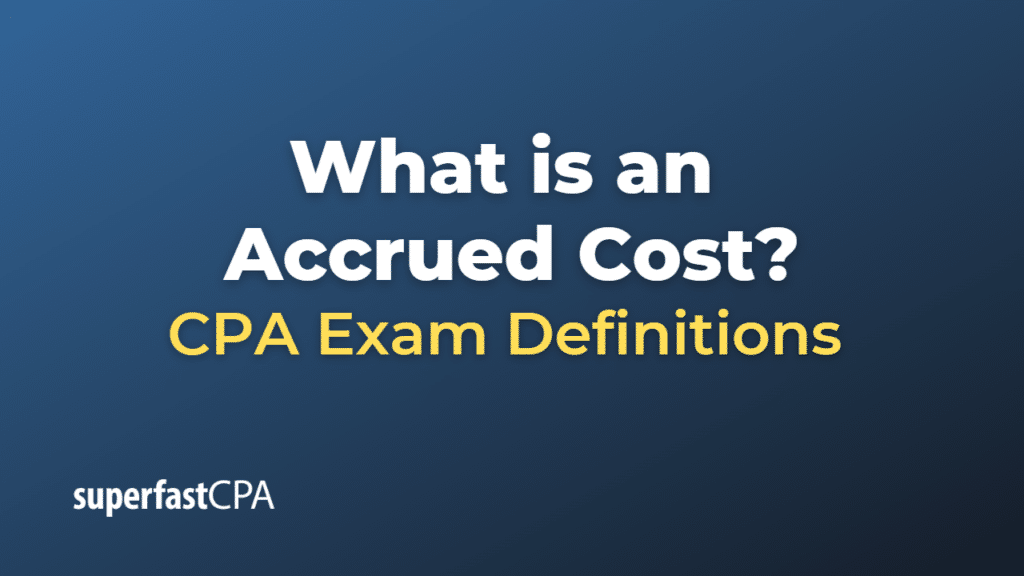Accrued Cost
An accrued cost, also known as an accrued expense or accrued liability, is an expense that a company has incurred in a given accounting period but has not yet paid. Accrued costs are recorded in the financial statements under the accrual basis of accounting, which recognizes economic events when they occur, regardless of when the cash is exchanged.
Accrued costs are typically recorded in the financial statements with a journal entry that debits the relevant expense account and credits an accrued liabilities or accounts payable account. This ensures that the expense is recognized in the same accounting period in which it was incurred, in accordance with the matching principle.
Examples of common accrued costs include:
- Wages and salaries: If a company’s pay period doesn’t align with the end of the accounting period, the company may have unpaid wages and salaries that have been earned by employees but not yet paid out.
- Utilities: A company may have used utilities such as electricity, gas, or water during an accounting period but not yet received or paid the bill.
- Interest: If a company has a loan or a line of credit, it may accrue interest expenses over time but not pay the interest until a later date.
- Taxes: A company may owe taxes based on its income or other taxable events during the accounting period but not pay those taxes until they are due at a later date.
- Professional services: A company may receive professional services, such as legal or accounting services, during an accounting period but not pay for those services until it receives an invoice.
By recognizing accrued costs in the financial statements, companies can more accurately reflect their financial performance and obligations in a given accounting period, providing a clearer picture of their financial health for management, investors, and other stakeholders.
Example of an Accrued Cost
Let’s consider a hypothetical example to illustrate an accrued cost.
Imagine a company called “Green Landscaping” that provides gardening and landscaping services. Green Landscaping follows the accrual basis of accounting. The company’s accounting period ends on December 31st, and it pays its employees bi-weekly.
In this case, Green Landscaping’s employees worked from December 24th to December 30th, but their wages for that week won’t be paid until January 5th of the following year.
To account for the accrued wages expense, Green Landscaping would record the following journal entry at the end of the accounting period on December 31st:
Debit: Wages Expense – $15,000 (assuming total wages for that week amount to $15,000) Credit: Accrued Wages Payable – $15,000
This journal entry recognizes the wages expense in the same accounting period in which the employees provided their services. The Accrued Wages Payable account is a liability account that represents the company’s obligation to pay the wages on the future payment date.
By recording the accrued cost, Green Landscaping ensures that its financial statements accurately reflect its financial performance and obligations for the accounting period, providing a clearer picture of its financial position for management, investors, and other stakeholders.













